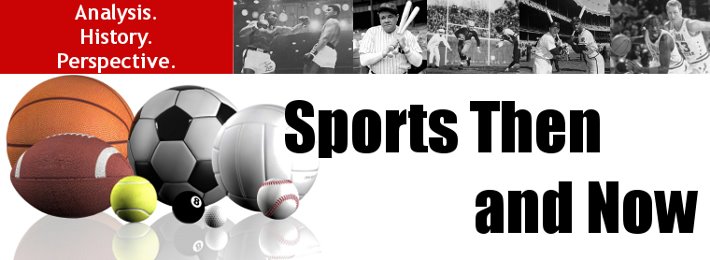
The Fourth of July is known for fireworks, patriotism, and family outings, but it's also a day that has been filled with some great moments in the sports world.
No July 4th moment has been bigger than the day, 70 years ago, when Lou Gehrig stood on the field at Yankee Stadium and proclaimed himself, “The luckiest man on the face of the earth.”
The sudden transformation of Gehrig from the “Iron Horse” to a man for whom a disease would soon be named after was punctuated that day, when the baseball world said goodbye to one of the all-time greats.
Gehrig died less than two years later, but his legacy is still alive today and will be honored in special ceremonies all across the baseball world on Saturday.
Yankee Stadium was the site for another memorable July 4th moment, 44 years later. On July 4, 1983 New York Yankees left-hander Dave Righetti hurled a no-hitter against the Boston Red Sox.
The “no-no” by Righetti, who would go on to earn his greatest distinction as a relief pitcher, was the first by a Yankee since Don Larsen’s perfect game in the 1956 World Series.
More than any other sport though, tennis and the Fourth of July have had a very special history.
The premier tennis tournament in the world, Wimbledon, is contested each year in late June and early July and often crowns a champion on a day that isn’t recognized as fondly in England as it is in the former colonies.
The tennis greats who have hoisted the championship trophy on July 4th include Jack Kramer, Maureen Connelly, John Newcombe, Billy Jean King, Stefan Edberg, Martina Navratilova, Steffi Graf, and Pete Sampras.
John McEnroe played in a pair of memorable championship matches on July 4th in 1981 and 1982.
In 1981 he avenged a dramatic loss from the previous year to end Bjorn Borg’s five-year run as champion and claim his first Wimbledon title.
The next year, he faced Jimmy Connors in a match between two fiery Americans. This time McEnroe was unable to hold onto his title, as Connors won the last two sets to claim the championship in a thrilling five-set match.
For many years, the annual summer NASCAR race at the Daytona Speedway was held on July 4th and known as the Firecracker 400.
Fireball Roberts won the first July 4th race at the speedway in 1959 and claimed victory in the race two more times before his untimely death just two days before the Fourth of July in 1964.
Richard Petty was victorious in the Firecracker 400 three times in his illustrious career, but the last of those wins was the most memorable.
In front of a crowd that included President Ronald Reagan, Petty’s victory at the 1984 race was the record 200th, and final, of his career.
NASCAR stopped holding the race specifically on July 4th in 1988. In fact, when the 2009 race, now called the Coke Zero 400, is held this upcoming Saturday, it will mark the first time since 1992 that the race has actually been run on the Fourth of July.
The holiday was also a favorite date for major boxing matches in the early part of the 20th century.
On July 4, 1910, Jack Johnson defeated James Jeffries in front of 22,000 people in Reno, Nevada in what was billed as the “Fight of the Century.” Two years later, Jackson defended his heavyweight title on July 4, 1912 with a victory over Jim Flynn.
Jack Dempsey captured the heavyweight title on July 4, 1919 with a punishing victory over Jess Willard in Toledo, Ohio. Willard later claimed that Dempsey’s gloves were reinforced with "plaster of Paris", but regardless, Dempsey won the title when Willard didn’t answer the bell for the fourth round.
Future heavyweight champion Joe Louis made his professional debut on July 4, 1934 against Jack Kracken in Chicago’s Bacon Casino. Louis earned a first round knockout and a total of $59 for his performance.
Another strange sports occurrence took place on the day of the American Bicentennial July 4, 1976.
In the first game of a doubleheader in Pittsburgh, Philadelphia Phillies' catcher Tim McCarver hit a grand slam home run, but had the historic blast negated when he passed Gary Maddox on the bases.
Philadelphia went on to win the game 10-5, but the strange base running blunder secured for McCarver a unique place in history.
With the Coke Zero 400, the Wimbledon Women’s Final and a full slate of Major League Baseball games set for this July 4th, there will undoubtedly be a new set of heroes adding their names to the illustrious list of athletes who have provided special fireworks on America’s birthday.





Nice compendium piece.
ReplyDeleteAnytime I have to go to the dictionary to see what a word means it always makes me nervous, but in this case I see it wasn't so bad.
ReplyDeleteThanks for the comment.